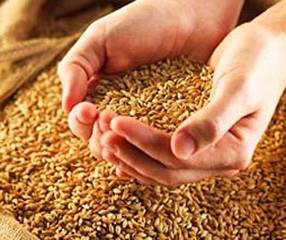 KIEV/ABU DHABI – Ukraine’s agriculture minister on Wednesday said the country would ban wheat exports from Nov. 15 after a weather-damaged harvest, a move that underpinned international prices.
KIEV/ABU DHABI – Ukraine’s agriculture minister on Wednesday said the country would ban wheat exports from Nov. 15 after a weather-damaged harvest, a move that underpinned international prices.Egypt, the leading global wheat importer, warned that Ukraine risked damaging its credibility on international grain markets. Ukraine later said existing contracts can be fulfilled.
“There will be a full ban from Nov. 15. There will be a government order about this. We are not playing games here. We do not have any other option,” Farm Minister Mykola Prysyazhnyuk told Reuters, confirming widespread speculation in markets in past weeks.
The European Union’s top farm official warned Ukraine to avoid any measures that would increase global grain prices and disturb traditional trade flows.
“I am deeply disappointed to see this announcement,” EU Agriculture Commissioner Dacian Ciolos said in a statement. “It will add unnecessary tension to international agricultural markets, and those that will suffer most will be the world’s poorest.”
Ukraine, one of the top 10 global wheat-exporting countries, saw its harvest slashed by a third this year due to poor weather, as the United States suffered its worst drought in more than half a century. Global prices of wheat, corn and soybeans raced up sharply over the summer period.
U.S. wheat rose on Wednesday after the confirmation on expectations that there would be more U.S. export business. Chicago December wheat rose 0.2 percent to $8.70-3/4 a bushel. It had been down 0.2 percent just before the announcement.
Prysyazhnyuk had said that Ukraine would consider imposing limits if the high level of exports threatened to push up the price of bread at home.
Last week the government said the high pace of wheat exports would exhaust stocks of Ukrainian wheat available for shipping abroad by Nov. 15-20, and it urged traders to be cautious in concluding new contracts.
Market players, who had feared the government would resort to unofficial restrictions, were relieved.
“A full ban with a clear date is probably the best option for traders,” said a trader for a large foreign grain house. “Everything is clear and we can claim force majeure.”
In 2010, the government, under a threat of a possible jump in local grain prices, raised artificial barriers for exports and halted the shipments in the first months of the crop season.













